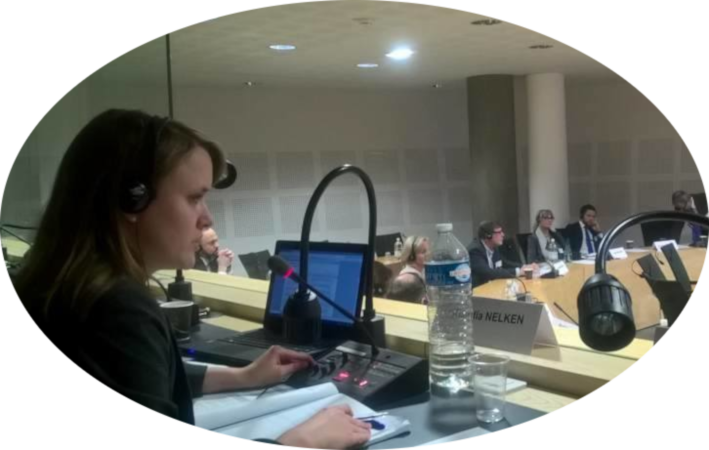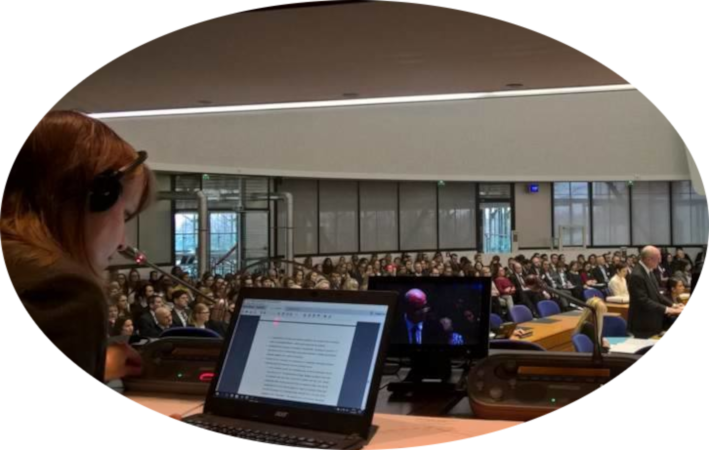Interpreting
Clear communication is the key to success in business and beyond. The way we speak significantly influences the way we are perceived. This is why high-quality interpreting is important. It can accurately render all information in the target language and make the communication clear and understandable.
There are several forms of interpretation. Generally, there are two types of techniques:
– consecutive interpreting
– simultaneous interpreting
Simultaneous interpreting is real-time translation of live speeches. The interpreter speaks simultaneously with the speaker. Thanks to this, listeners can follow the meeting without delay, and there is no extra time needed for interpretation.
Booth interpreting is simultaneous translation in which two interpreters sit in a special booth and are connected to the listeners via headsets. This type of interpreting is suitable for meetings with a large number of participants, such as conferences.
Whispered interpreting (chuchotage) is a translation which is whispered to a small group. No specialist equipment is needed, but this service can only be provided for a maximum of three people.
Consecutive interpreting consists of phases. During the first phase the delegate will speak (for a maximum of 5 minutes), and then the interpreter conveys his thoughts in the target language, with the help of a special note-taking system.
This type of interpreting is a good solution for business meetings, training sessions and workshops. For example, during events with a large number of participants speeches can be consecutively interpreted on stage using a microphone.
Several years of experience: consecutive and simultaneous interpreting (booth and whispered interpreting) during trade fairs, training sessions, workshops, presentations, conferences, business meetings, events and study visits.
Some examples of my interpreting projects:
– Simultaneous interpreting during a Polish Ministry of Justice conference entitled ‘Standards and good practices related to e-services in public administration’
– Simultaneous interpreting for several Polish judges during a study visit at the Council of Europe and the European Court of Human Rights
Two-year interpreting programme (languages: French and English) during Master studies in Applied Linguistics at the University of Warsaw completed with a ‘very good’ grade.
Thanks to professional interpreting, you can fully focus on the content of the meeting and rest assured that your thoughts will be clearly conveyed in another language.


